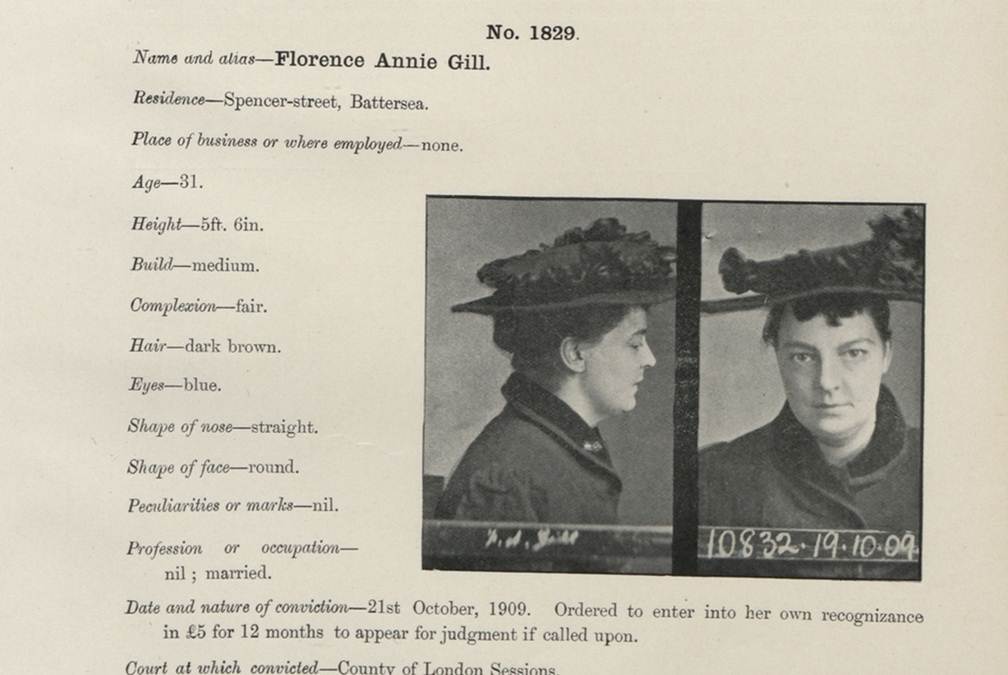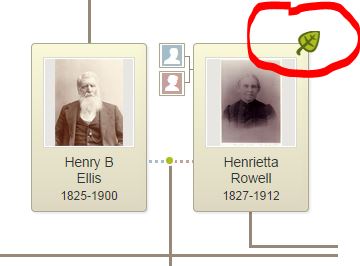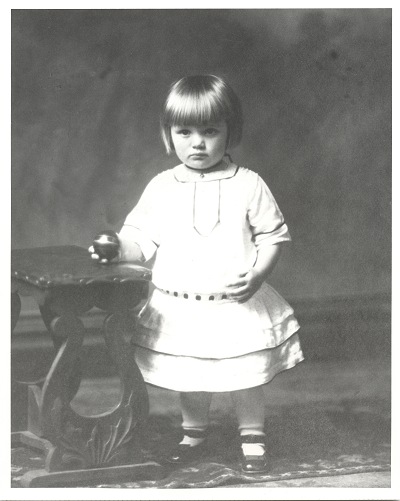Find Your Criminal Ancestors: UK collection from Findmypast.com
If you have British roots, you’ll want to check out the new collection available on Findmypast.com: a half million criminal records dating from 1770-1934!
This sounds like a pretty gripping collection, whether you’ve got British roots or not. It contains records like mug shots, court documents, appeals letters and registers from prison ships (which were used when mainland prisons were crowded). According to Findmypast.com, the records “provide a wide variety of color, detail and fascinating social history, chronicling the fate of criminals ranging from fraudsters, counterfeiters, thieves and murderers and their victims.” The 500,000 records you can search now are only a fifth of the full collection of 2.5 million that will be online soon.
The company calls this the largest collection of historical criminal records from England and Wales to be published online and is done in association with the National Archives (UK). Findmypast.com members can click here to access the criminal collection directly (make sure the box for “Institutes and Organizations” is checked).
Here’s a little more background on connections between British convicts and the U.S. and Australia….
During colonial times, Britain often punished criminals by forcing them to emigrate. The most famous destination was Australia: the first British settlement on that continent in 1787 was actually a penal colony. Australia celebrates that fact about its heritage today: learn more about the “First Fleet’s” arrival here.
Up to about 50,000 British convicts were also forced to emigrate to the American colonies during the 1700s. These included prisoners of war from Ireland and Scotland. Read more about this in Bound for America: The Transportation of British Convicts to the Colonies, 1718-1775 (Clarendon Paperbacks) by A. Roger Ekirch. Findmypast.com isn’t able to tell us yet how many records in the criminal collection relate to forced emigrations, but anyone with roots in the U.K. should check out this collection for sure.
Get the Most out of Ancestry.com Shaky Leaf Hints
If you’re an Ancestry.com user, you’ve seen those “shaky leaves.” They are automated hints generated when Ancestry.com thinks a historical record or tree matches an individual on yours.
Are you getting the most out of your Ancestry.com shaky leaf hints? Check out this video on YouTube–then keep reading!
In a nutshell: look at all the hints. Then keep searching.
According to the Ancestry Insider blogger, hints are only provided for the top 10% of Ancestry records.
I asked our Genealogy Gems source at Ancestry.com about this. He did clarify that this means the most popular 10% of collections, which accounts for “a majority of the records.” But he also comments, “Hints are not meant to be an exhaustive method to flesh out all of the records for your ancestors. People should always search as well as use hints.”
After checking all the hints, I routinely find a LOT more by then searching records from an individual’s profile.
Search from the profile rather than the main search screen so some of the other data you’ve already found (like dates and relationships and locations) will be included automatically in the search parameters. I think searching from the individual profile also makes it faster to attach records to your person once you’ve found them.
Click here to hear how one woman used Ancestry.com hints to discover a tree for the biological mother who abandoned her when she was five. You’ll also learn her inspiring message about how moving past her mother on her family tree has helped her move on with her life.
Church Records for Genealogy on Archives.com
UPDATE: THIS COLLECTION HAS BEEN EXPANDED AND IS NOW ALSO AVAILABLE ON ANCESTRY.COM.
About 4.6 million genealogical records from the Evangelical Lutheran Church in America (ELCA) are now available on Archives.com.
 This project represents a unique collection for Archives.com, which partnered with the ELCA Archives to digitize and index about 1000 rolls of microfilmed records of affiliated church. According to the company, this collection represents records that have never been online before. It eliminates the major barriers we usually have in researching church records: not knowing which specific congregation an ancestor attended; not knowing where those records are now and not having easy access to them.
This project represents a unique collection for Archives.com, which partnered with the ELCA Archives to digitize and index about 1000 rolls of microfilmed records of affiliated church. According to the company, this collection represents records that have never been online before. It eliminates the major barriers we usually have in researching church records: not knowing which specific congregation an ancestor attended; not knowing where those records are now and not having easy access to them.
According to a company press release, “The records in these collections date from the mid-1800s through 1940 and include births, baptisms, confirmations, marriages, deaths, and burials. Details vary from church to church, but often include parents’ names, dates and places of the event, and other biographical details. Many of the churches were founded by immigrants from Norway, Sweden, and Germany and had immigrant families as their members.”
I was curious to see what I could find in the collection on my own family. You can imagine how happy I was to find this record (image below) of my grandmother, Alfreda Sporowski (image right) from Gillespie, Illinois:

Church record naming Alfreda Sporowski, from Archives.com’s collection of Evangelical Lutheran Church records.
I remember years ago writing a letter to the church and receiving a letter in reply with this information. Now I’m looking at the original document in just seconds from my home computer. We’ve come a long way!
Not a member at Archives.com? You can sign up here for a free 7-day trial membership.
We Dig These Gems! New Genealogy Records Online
 How great to see these new genealogy records online! Those with German roots will especially want to check out new resources on Ancestry.com.
How great to see these new genealogy records online! Those with German roots will especially want to check out new resources on Ancestry.com.
ENGLAND CHURCH. Findmypast.com has updated its collections of church baptismal and marriage records for Dorset, England. Those collections now together number about a million records.
GERMANY – MILITARY. Over 400,000 records are part of a new Ancestry.com collection of Bremen military lists (1712-1914). According to the collection description, “The core of the collection are the muster rolls created by recruiting commmissions including actual musters from 1894-1917 for men born between 1874 and 1899. These records are arranged in chronological-alphabetical order and contain detailed information about male military personnel in the city.”
GERMANY – CHURCH. An enormous collection of Lutheran baptisms, marriages and burials is now searchable on Ancestry.com. You’ll find over 24 million records from “parish registers from numerous Protestant communities in Baden, today part of the German state of Baden-Württemberg…[and]some communities to the north, such as Wiesbaden in adjacent Hessen.” Another new Ancestry.com collection contains over a million birth, marriage and death records taken from weekly church reports in Dresden, Germany for 1685-1879.
GERMANY – IMMIGRATION TO U.S. A new database on Ancestry.com catalogs German immigrants to the U.S., 1712-1933.
IRELAND NEWSPAPERS. Over half a million new Irish newspaper articles have been added at Findmypast.com. According to a company press release, “Significant updates have also been made to seven existing titles” and a new title from Northern Ireland for 1891-1896 is a “must-read for anyone with ancestors from that part of the country.”
U.S. – NEVADA DEATHS. Just over a quarter million records are part of a new Ancestry.com collection of Nevada death records for 1911-1965. The indexed images are state death certificates.
 Got German roots? Click here to read an article on German newspapers in the U.S.
Got German roots? Click here to read an article on German newspapers in the U.S.
